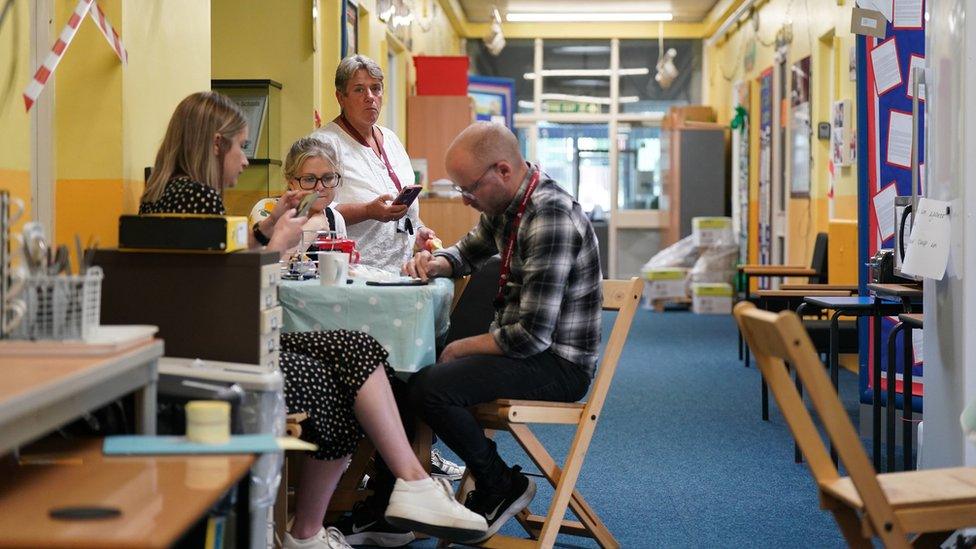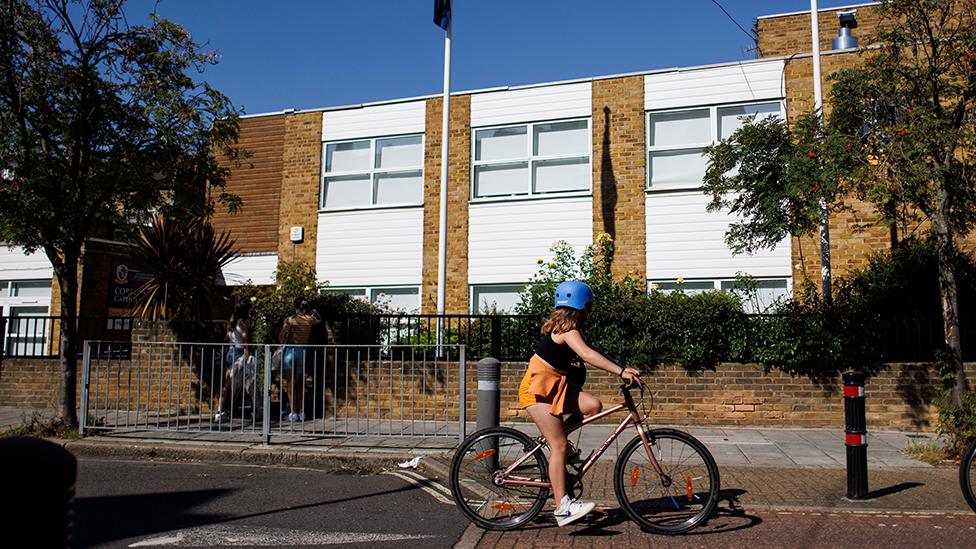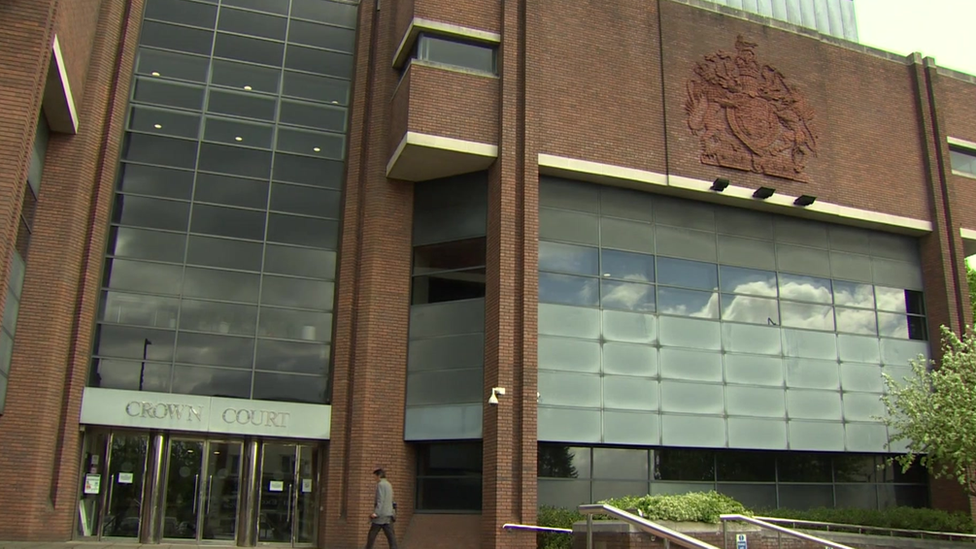Jeremy Hunt says government will 'spend what it takes' to make schools safe
- Published
We'll spend what it takes to ensure safe schools - Chancellor Jeremy Hunt
Jeremy Hunt has said the government "will spend what it takes" to make schools safe from crumbly concrete.
The chancellor did not give a figure but told the BBC's Sunday with Laura Kuenssberg "we must spend this money".
More than 100 schools must shut fully or partially due to risky reinforced autoclaved aerated concrete (RAAC).
Labour said Mr Hunt's funding promise was a "bare bones" response to a crisis that will be "the defining image of 13 years of Tory government".
The Treasury says Mr Hunt's promise does not mean any new money outside of current budgets.
The repairs will be paid for through unallocated funds for schools in existing departmental budgets.
The chancellor said that the majority of schools in England where RAAC has been identified were able to operate at least partially and said the government would continue to act "very, very fast" to mitigate any new risks that were found.
"We had an exhaustive process of going through every one of the 22,000 schools since 2018," he said, referencing a survey commissioned in England after an incident when RAAC in a building failed.
He added that "new information came to light" in the summer about heightened risks, and "the education secretary acted immediately".
That new information is understood to be the collapse last week of a beam made from aerated concrete, which had been thought to be safe.
The chancellor said it would not lead to months of disruption. "This problem is currently affecting around 100 schools but the majority of those are able to operate face-to-face," he added.
Mr Hunt said he did not want to speculate on press reports that 7,000 schools could ultimately be found to be at risk, but acknowledged that more "awkward" and "difficult" information could come to light.
He added: "What people need to know is that however difficult it is... we will do absolutely what it takes."
RAAC has become a serious political problem for the government, and raises questions about its whole approach over the years to cutting spending on public buildings.
When there is pressure on budgets, so-called "capital spending" - cash for infrastructure and buildings - is an easy target. However, the risk is that in the long term, those cut-backs have nasty effects. Labour says that RAAC is a prime example.
The government has yet to publish a full list of schools that have been forced to fully or partially shut but says it will do so "in due course". The BBC has created its own of those it knows are affected..
Labour has said it will to try to force publication after the Commons returns from summer recess on Monday. It has also demanded an "urgent audit" of the public sector estate on the impact of the material.
Bridget Phillipson, the shadow education secretary, said the country needed to know "exactly what is going on".
She added it was "all good and well" that Mr Hunt had promised to spend, "but that is the bare bones".
"The chickens are coming home to roost," she said.
"I can think of no more a defining image of 13 years of Tory government [than] children being sat in classrooms under metal props to prevent ceilings from falling on their heads."
Watch: Government should publish full list of schools affected - Labour
The National Education Union, which represents about 440,000 educational staff in the UK, said significant investment was needed to prevent long-term disruption in schools.
"The government made a choice not to invest in educational buildings. It made a choice not to support the building of new schools," said Niamh Sweeney, the deputy general secretary.
"If you are still teaching 21st-Century education in a building which was built in the 1950s, that is not fit-for-purpose nowadays."
'My heart goes out'
Rachel De Souza, England's children's commissioner, had said that she was "shocked" about the sudden warnings issued on Thursday that more than 100 schools would need to mitigate against RAAC.
"My heart goes out to parents and children affected," she said, adding that she was "disappointed and frustrated" at the apparent lack of plan from the government.
She said she was happy to hear repairs would be funded by the government, "but we shouldn't even be in this situation".
"There should have been planning in place and a really good school building programme that has addressed this over the years," she said.
Education Secretary Gillian Keegan will inform Parliament next week "of the plan to keep parents and the public updated on the issue", her department has said.
Writing in the Sun on Sunday newspaper, Ms Keegan said the government had "no choice" but to close schools, and that it was not a decision it had taken lightly.
"I want to reassure families that this is not a return to the dark days of school lockdowns," she said.
Schools in Scotland, Wales and Northern Ireland are being assessed for the material.
The Scottish government has identified 35 schools with RAAC but said that none posed an"immediate risk" to pupil safety.
The Welsh government said councils and colleges have not reported any presence of Raac, while authorities in Northern Ireland have not found any schools at risk.
Related topics
- Published3 September 2023

- Published13 February 2024

- Published1 September 2023
